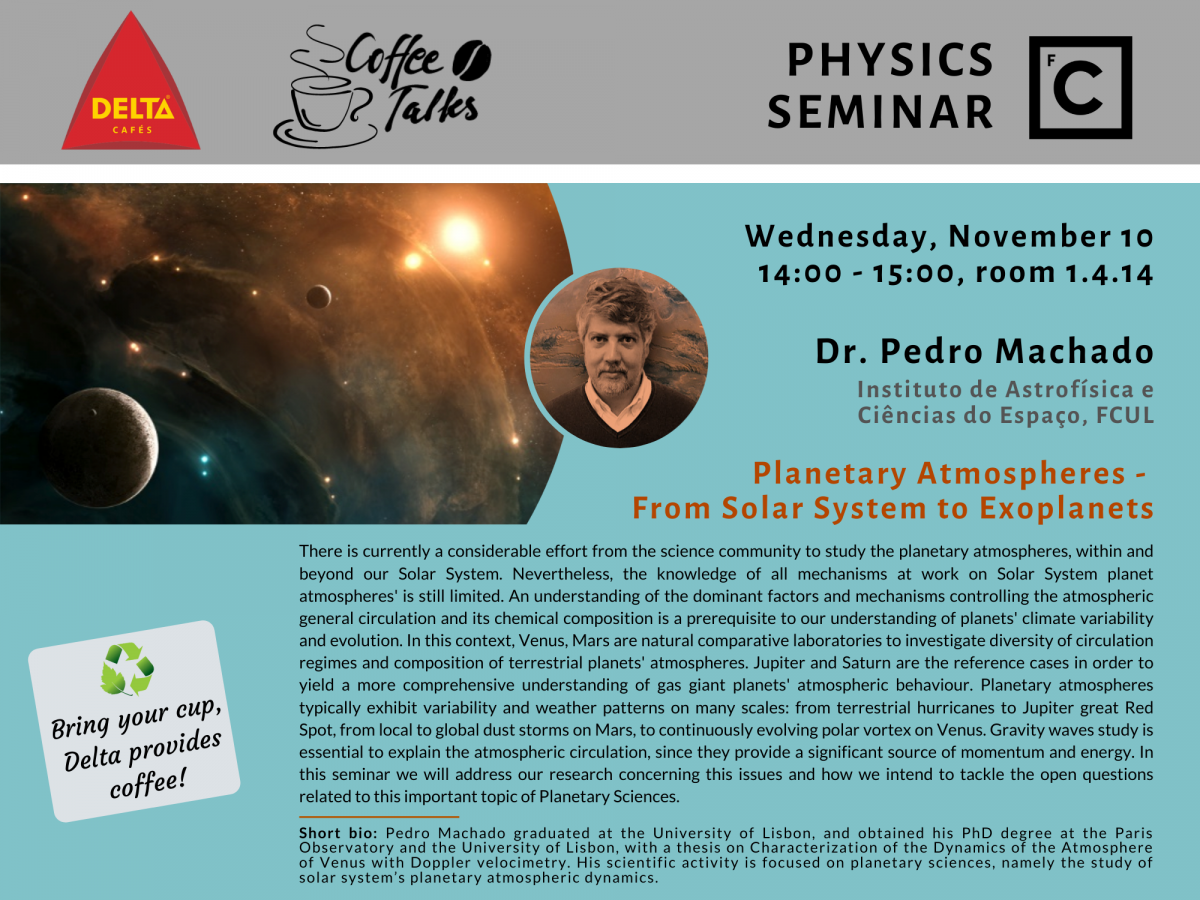Por Pedro Machado (Instituto de Astrofísica e Ciências do Espaço, Ciências ULisboa).
There is currently a considerable effort from the science community to study the planetary atmospheres, within and beyond our Solar System. Nevertheless, the knowledge of all mechanisms at work on Solar System planet atmospheres' is still limited. An understanding of the dominant factors and mechanisms controlling the atmospheric general circulation and its chemical composition is a prerequisite to our understanding of planets' climate variability and evolution. In this context, Venus, Mars are natural comparative laboratories to investigate diversity of circulation regimes and composition of terrestrial planets' atmospheres. Jupiter and Saturn are the reference cases in order to yield a more comprehensive understanding of gas giant planets' atmospheric behaviour. Planetary atmospheres typically exhibit variability and weather patterns on many scales: from terrestrial hurricanes to Jupiter great Red Spot, from local to global dust storms on Mars, to continuously evolving polar vortex on Venus. Gravity waves study is essential to explain the atmospheric circulation, since they provide a significant source of momentum and energy. In this seminar we will address our research concerning this issues and how we intend to tackle the open questions related to this important topic of Planetary Sciences.
Short bio: Pedro Machado graduated at the University of Lisbon, and obtained his PhD degree at the Paris Observatory and the University of Lisbon, with a thesis on Characterization of the Dynamics of the Atmosphere of Venus with Doppler velocimetry. His scientific activity is focused on planetary sciences, namely the study of solar system’s planetary atmospheric dynamics.



















